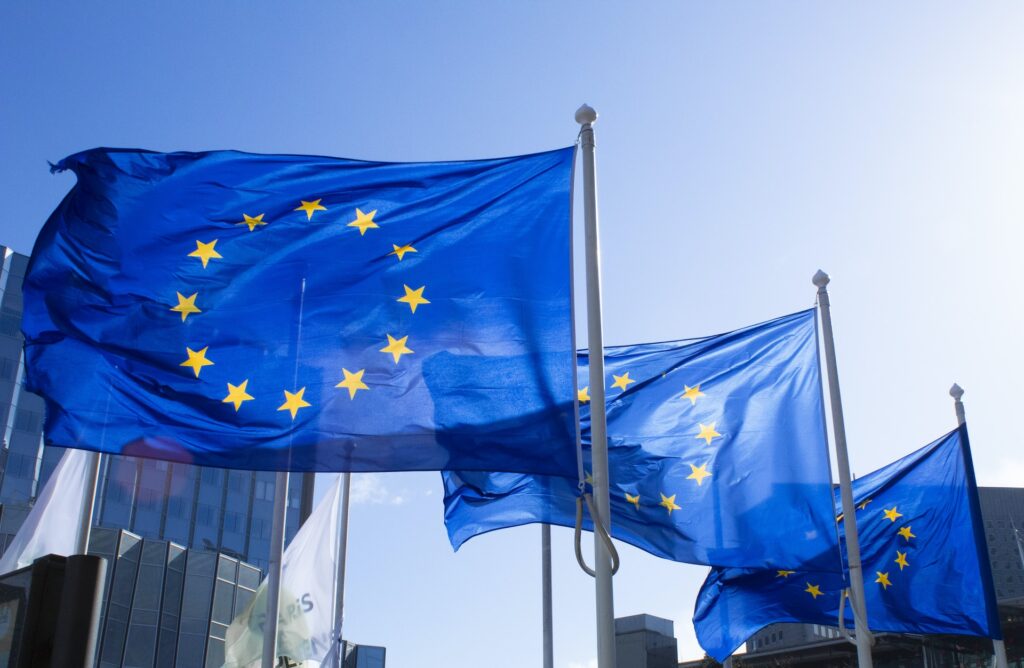For EU citizens contemplating a move to Portugal, the journey ahead is not just a personal transition but a promising venture for the entire family. Nestled at the western edge of Europe, Portugal stands out as a beacon of cultural richness, scenic landscapes, and a quality of life that many only dream of. This article is dedicated to you, the EU citizen who envisions a life where the Atlantic breeze and the warmth of the Portuguese sun are daily realities for you and your loved ones.
Who can apply for Portugal Family Reunification Visa?
Under the Portugal Family Reunion Visa you are entitle to bring your family members who are already in Portugal or who will join you in Portugal. The following is the list of family members that may qualify for family reunification:
- Your spouse or partner.
- Your children under 18 years of age or incapacitated children of the couple or of one of their spouses/partners.
- Children over 18 years of age who are dependent on you or your spouse which means that they are single and studying.
- Your parents or your spouse/partner’s parents if they are dependent on you.
- You minor siblings.
Citizens from countries within the European Union (EU), the European Free Trade Association (EFTA, which includes Iceland, Liechtenstein, Norway, and Switzerland), and the Principality of Andorra do not require a visa for entry into Portugal.
Residence Card for Family Members of Union Citizens from Non-EU Countries
Under Article 15.o of Law no. 37/2006, of 09 August, family members of Union citizens who are nationals of non-EU countries and plan to stay in Portugal for more than three months are required to obtain a residence card. This process is approved by the ministerial order from the government official in charge of internal affairs.
The application for the residence card must be submitted to either the central or regional branches of the Agency for Integration, Migration and Asylum (AIMA) relevant to their living area. This should be done within 30 days following the completion of three months since their arrival in Portugal.

Family Reunification Process
The process for obtaining a Residence Card for Family Members of Union Citizens from Non-EU Countries encompasses two phases:
1. Registration of the EU Citizen in Portugal
To acquire your EU Residency Certificate (CRUE), you must visit the city council in the area of your residence in person and present the following documents:
a) A valid passport;
b) NIF (Tax Identification Number);
c) Proof of Accommodation: You must provide evidence of permanent accommodation for a minimum of one year. This could be ownership of property in Portugal, evidenced by a purchase contract, or long-term rental agreements. If presenting a lease agreement, it must be registered by the landlord with the tax authorities. You will need to present your contract and an electronic rent receipt.
d) Proof of Sufficient Means: For employed individuals, a work contract suffices. You may also present a bank statement as proof. It is acceptable if the bank statement is from a different country; the critical requirements are that your name and the amount are clearly visible.
e) Portuguese Bank Account – Depending on your residential area, this may be required.
The EU Residency Certificate is issued to you immediately and incurs a fee of €15.
2. Applying for Family Reunification
Once the EU Residency Certificate is obtained, the EU national can proceed to apply for family reunification under Article 15 through AIMA (Agency for Integration, Migration, and Asylum).
You need to be prepared to deliver the following documentation:
a) EU Residency certificate;
b) Passport
b) Portuguese NIF number
d) Marriage Certificate
e) Children’s Birth Certificate
f) Proof of Accommodation: Proof of permanent accommodation (minimum of 1 year) – this can include owned property in Portugal (purchase contract) or long-term rental agreements.
g) Bank Statement from a Portuguese Bank with the minimum amount: First adult: 100% of the current minimum wage (€870) – €10,440.00; Second adult (spouse or equivalent): 50% of the previous amount – €5,220.00 and Children under the age of 18: 30% – €3,132.00;
h) Proof of means of subsistence (from a work contract or passive income)
i) Proof of enrollment at a school in Portugal for children of school age.

Documentation Validity
Passport: with a minimum validity of 6 months;
Marriage Certificate: with The Hague Apostille (if applicable) or legalized, dully translated to Portuguese (certified translation), and issued less than 180 days ago. We recommend that the marriage is registered in a EU country, in case the certificate is non-EU.
Children’s Birth Certificate: with the Hague Apostille (if applicable) or legalized, duly translated to Portuguese (certified translation) and issued less than 180 days ago.
Criminal record certificates: must have been issued less than 90 days before being submitted to the Portuguese authorities.
Any document of Portuguese origin does not need to be translated or notarized (as long as you present the originals on the day of your appointment). Every other document should be translated and notarized if possible (this does not include copies of your identification documents or bank statements).
Portugal Family Member Rights
Family members of the main resident in Portugal typically enjoy access to many of the same rights and privileges as the primary visa holder. This inclusivity extends to several crucial aspects of life in Portugal, ensuring their integration and well-being in the country.
Healthcare Access
Family members are generally entitled to access healthcare services in Portugal, provided they obtain a “numero utente” or a user number.
Right to Work and Study
Portugal acknowledges the importance of family unity and integration. Therefore, family members typically have the right to work and study within the country.
Schengen Area Travel
As Portugal is a member of the Schengen Area, family members can leverage this status for convenient travel within the Schengen Zone.
For more videos about investing or moving to Portugal, explore our YouTube channel here: YouTube Channel Portugal Residency Advisors.
Why choose to work with us
Local Expertise
We know Portugal. Due to our extensive local knowledge, we believe that concentrating our services in a single country destination is the best way to give you the most thorough and useful information.
Holistic Approach
One single channel of communication for the entire process. We provide you with a comprehensive service that covers all aspects of your move, from identifying the ideal residency visa to finding your new home or helping you to settle.
Transparent Service
We recommend what’s best for you base on an extensive process experience that saves time and money to clients. Our pricing is clear and competitive, and we don’t sell services that make us more money.
Simple Process
Technology plays a very important role in our company. We minimize our clients’ involvement in paperwork. We are customers ourselves and we know how to serve you.
Frequently Asked Questions About EU Registration
Who is eligible for family reunification in Portugal?
EU citizens living in Portugal have the right to bring certain family members to live with them. This includes spouses, registered partners, direct descendants who are under 21 or are dependents, and dependent direct relatives in the ascending line (such as parents).
What is the first step for an EU citizen to start the family reunification process?
The first step is to register yourself as an EU resident in Portugal. This involves obtaining the EU Residency Certificate (CRUE) by providing required documents to the city council of your residence area.
How long does the residence card for family members is valid?
The residence card is valid for five years from the date of issue, or for the duration of the EU citizen’s expected period of residence if it is less than five years.
What documents are required for the application of a residence card?
The EU citizen will need to provide a valid passport, a Tax Identification Number (NIF), proof of accommodation, proof of sufficient means (like a work contract or bank statement), and potentially a Portuguese bank account, depending on the area of residence.
Where should the application for a residence card be submitted?
The application must be submitted to the central or regional offices of the Portuguese Immigration Autorities (AIMA) within 30 days after living in Portugal for three months.
Are family members from non-EU countries required to attend any sessions or appointments?
Yes, family members are required to attend a biometrics collection session at the office of the Agency for Integration, Migration, and Asylum (AIMA).
What is the cost of obtaining an EU Residency Certificate in Portugal?
The EU Residency Certificate costs €15 and is usually issued on the spot during your visit to the city council.
Can family members work in Portugal during the reunification process?
Once the family member has applied for a residence card, they are typically allowed to work in Portugal.
How long does the family reunification process take?
The timeline can vary depending on individual circumstances and the current workload of the Immigration and Borders Service. It is advisable to apply as soon as possible and to check with AIMA for the most accurate estimate.
Are same-sex partners and civil unions recognized for family reunification in Portugal?
Yes, Portugal recognizes same-sex marriages and registered partnerships for the purpose of family reunification.




